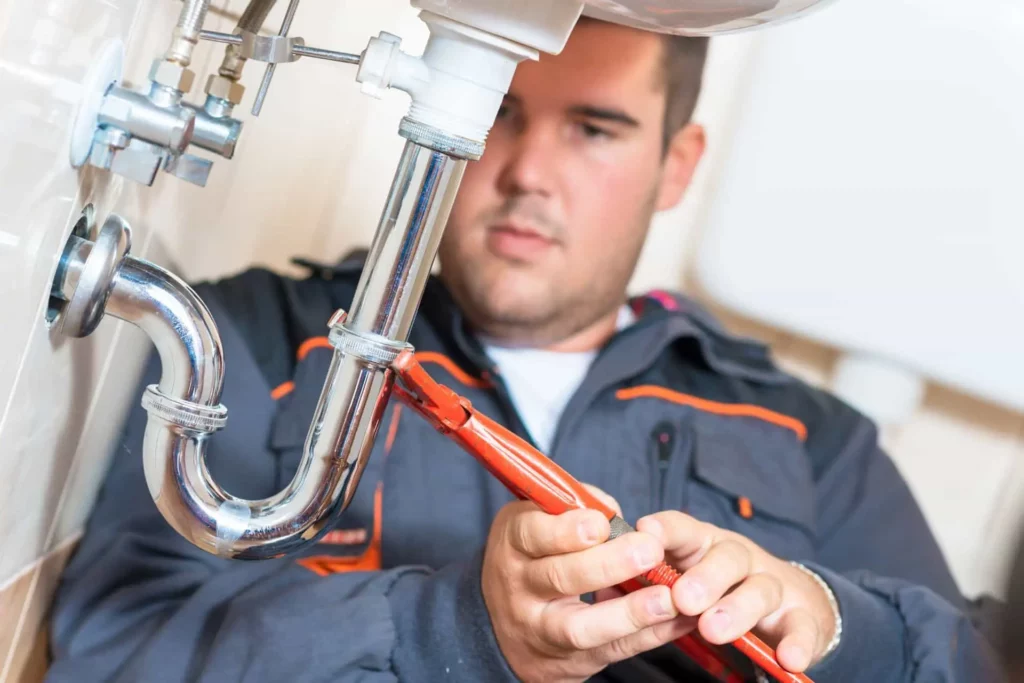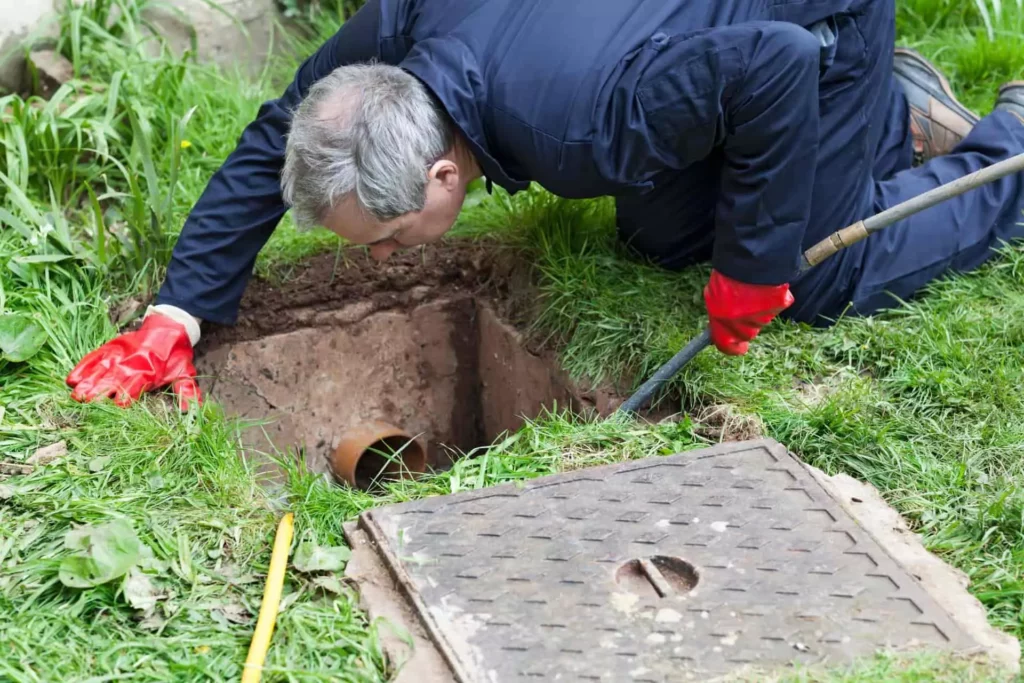Opening your home to an unexpected and unpleasant sewer smell can quickly turn your safe haven into a source of discomfort and concern. This pervasive issue of sewage smell disrupts the peace of your living space and signals potential health risks that demand immediate attention.
Understanding the origins and solutions to sewer gas smells is crucial for maintaining a healthy environment and preventing more serious complications. This article dives into the common causes, effective solutions, and preventative measures to help you reclaim the freshness of smell in your home. Join us as we explore how to address this pressing issue effectively.
Causes of Sewer Gas Smell in House

Plumbing Issues
Common plumbing issues such as clogged drains, malfunctioning traps, and corroded pipes often lead to sewer smells in homes. These problems interrupt the normal operation of plumbing systems, allowing sewer gases to escape into living areas. While these are well-known causes of house smells, other less typical issues, such as improperly installed vent pipes or aging sealants, may contribute to the problem but are less frequently discussed.
Dry P-Traps
P-traps in plumbing systems are designed to trap a small amount of water, forming a seal that prevents sewer gases from entering the home. If a P-trap dries out, it loses this water barrier, allowing odors to permeate indoor spaces.
To prevent this, it’s important to ensure P-traps in infrequently used sinks and fixtures remain hydrated. Adding water to these traps can help maintain the seal and keep your living areas free from sewer gas smells.
Vent Pipe Issues
Vent pipes are integral to plumbing systems, allowing sewer gases to escape safely outdoors and helping maintain proper pressure to allow wastewater flow. Issues with vent pipes, such as blockages from nests, leaves, or ice, can cause these gases to back up into the home, leading to sewer smells.
Signs of vent pipe problems include gurgling sounds from drains or noticeable odors near fixtures. Seasonal changes can exacerbate these issues, particularly in colder climates where ice can seal vents. Troubleshooting should include inspecting for obstructions and ensuring vents and floor drains are clear year-round.
Sewer Line Problems
Common issues with sewer lines that cause odors include blockages, breaks, and leaks. Diagnostic approaches typically involve visual inspections, use of cameras, and smoke tests to identify the exact location and nature of the problem.
While these methods are standard, emerging technologies like acoustic monitoring, which detects anomalies in pipe flow sounds, offer innovative alternatives.
These newer techniques can quickly pinpoint disruptions in sewer lines before they lead to significant damage or odor issues, potentially offering more efficient and less intrusive solutions.
Diagnosing Sewer Smell

Identify the Source
A thorough and structured approach is essential to identify the source of sewer smells in your home effectively. Here’s how you can diagnose these odors:
- Smoke Testing: Inject non-toxic smoke into the plumbing system. Observe where the smoke escapes to pinpoint breaches or leaks where odors could emerge.
- Drain Cameras: Use a camera to inspect the interiors of pipes visually. This helps detect blockages, cracks, or other structural issues.
- Dye Testing: This method involves adding a non-staining dye to the plumbing system to trace water flow and detect leaks visually.
- Thermal Imaging: Employ thermal imaging to detect unusual heat patterns along pipes, which can indicate hidden leaks in a non-invasive manner.
- Acoustic Monitoring: Some newer techniques involve listening for discrepancies in the flow sounds within pipes, which can indicate blockages or breaks not visible to cameras or traditional methods.
Each method provides a unique angle of diagnosis for sewer gas odor, enhancing the accuracy and efficiency of identifying the root cause of sewer smells in your home.
Tools and Techniques
For diagnosing sewer smells, several tools and techniques can be crucial:
- Electronic Nose Sensors: These advanced devices detect and analyze odors, identifying potential sewer gas leaks.
- Smoke Machines: Used to push smoke through the plumbing system, revealing leaks where smoke exits.
- Drain Cameras: Provide a direct view inside the sewer system to spot obstructions and damage.
- Hydrogen Sulfide Detectors: Specifically detect this common component of sewer gas.
- Ultrasonic Detectors: Use sound waves to identify leaks by detecting the frequency change caused by escaping gases.
These tools enhance diagnostic capabilities, offering faster and more accurate identification of the problem sources.
Solutions to Eliminate Sewage Smell
Home Remedies
To effectively eliminate a sewer smell, several home remedies can be employed:
- Vinegar and Baking Soda: This classic combination can be poured down drains to create a chemical reaction that helps clear out foul smells.
- Boiling Water: Regularly flushing drains with boiling water can prevent the buildup of smelly residue.
- Salt and Ice Cubes: These are useful for cleaning and deodorizing the blades and walls of garbage disposals.
- Lemon Peels: Grinding them in the garbage disposal can leave a fresh citrus scent.
- Activated Charcoal: This can be placed near the source of the sewage smell as it is excellent at absorbing odors.
- Peppermint Oil: A few drops in drains can act as a natural deodorizer, leaving a pleasant smell.
- Tea Tree Oil: Known for its strong antibacterial properties, it can be diluted with water and used to wipe down affected areas.
These methods are simple yet effective and expand upon commonly suggested solutions by incorporating less widely known but highly effective natural remedies.
Professional Solutions
Professional interventions offer robust solutions for a persistent sewer smell, which may not be resolved by home remedies alone. Here’s how some of these solutions compare:
- Hydro-Jetting: Utilizes high-pressure water to cleanse inside pipes, effectively removing blockages and accumulated debris.
- Pipe Relining: This involves inserting a new, seamless liner into damaged pipes and sealing all cracks and leaks without extensive excavation.
- Epoxy Pipe Coating: A newer technology that applies a protective coating inside pipes to prevent future leaks and corrosion.
These professional techniques are designed for durability and efficiency. They address plumbing problems that simpler methods cannot manage. Compared to home remedies, they provide a longer-lasting remedy to sewer odor issues, ensuring a home’s plumbing integrity.
Preventative Measures
To prevent a sewage smell issues effectively, homeowners can implement a variety of maintenance practices:
- Regular Water Flow: Ensure water flows through all house drains periodically to keep the P-traps full, especially in rarely used fixtures.
- Bi-Monthly Cleaning: Use a combination of baking soda and vinegar to flush drains regularly, helping to prevent buildup and odor.
- Annual Inspections: Have a professional inspect and clean the plumbing system annually to identify and resolve potential issues early.
- Seasonal Precautions: During autumn, ensure vents and drains are clear of leaves, and in winter, check for ice blockages.
- Smart Technology: Consider installing smart home devices that monitor water pressure and flow, detecting leaks or abnormalities in the plumbing system early.
These steps can significantly reduce the likelihood of encountering a sewer smell by maintaining the health and integrity of your home’s plumbing and septic system itself.
When to Call a Professional
When deciding whether to call a professional plumber, consider these key indicators: have home remedies been tried without success, do foul odor or sewer smells return frequently, or is there visible leakage or damage to plumbing fixtures?
Additionally, if you detect persistent or worsening sewer odors despite taking corrective actions, this suggests more serious underlying issues that require professional assessment and repair. It’s crucial to consult a professional when these signs are observed to prevent further damage and ensure the health and safety of your home environment.
Conclusion to Sewer Smell in House

This article provided comprehensive solutions to address and prevent a sewer smell in your home, detailing everything from home remedies to professional interventions. It discussed the importance of routine maintenance and how to diagnose issues effectively using modern tools and techniques.
Phyxter Home Services stands as a beacon of expertise, offering insights grounded in extensive experience within the plumbing industry. For more useful information on plumbing maintenance and solutions, explore other articles by Phyxter Home Services. If you’re seeking reliable, professional help, check if Phyxter Home Services is available in your area to ensure your plumbing needs are met with the highest standard of care.

